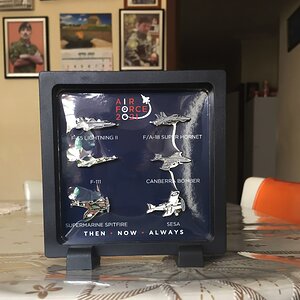iresq
TPF Noob!
- Joined
- Nov 8, 2011
- Messages
- 208
- Reaction score
- 24
- Location
- Annapolis
- Can others edit my Photos
- Photos OK to edit
If you have not read it.. please try Bryan Peterson's Understanding Exposure... he explains it all in very simple terms... might help! Amazon.com: Understanding Exposure, 3rd Edition: How to Shoot Great Photographs with Any Camera (9780817439392): Bryan Peterson: Books
It's been mentioned a few times and I am currently working my way through it. A good read and you can practice as you go.
As an Amazon Associate we earn from qualifying purchases.


 I am just busting your stones, no serious offense meant. While I don't think that people can ONLY learn visually, I think that its a tool that can cause some people to learn faster or atleast retain that information much easier. As a teacher that should be your job to do all that you can to ensure that what you are espousing, sticks. For instance, I can memorize a phone number much faster by memorizing the pattern shape that it creates when entered into a phone. Eventually I remember the digits themselves, but that is more because of repetition. It just depends on the person.
I am just busting your stones, no serious offense meant. While I don't think that people can ONLY learn visually, I think that its a tool that can cause some people to learn faster or atleast retain that information much easier. As a teacher that should be your job to do all that you can to ensure that what you are espousing, sticks. For instance, I can memorize a phone number much faster by memorizing the pattern shape that it creates when entered into a phone. Eventually I remember the digits themselves, but that is more because of repetition. It just depends on the person. 










